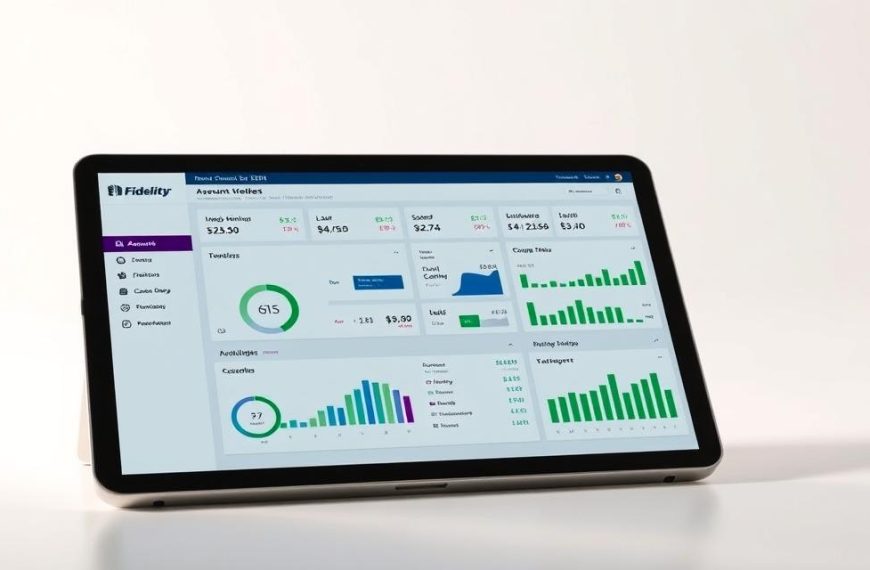When launching a new venture, many entrepreneurs use their own funds to get started. However, commingling personal and business finances can lead to significant complications down the line, including legal vulnerabilities and tax issues.
Maintaining clear boundaries between personal finances and business finances is crucial for entrepreneurs and small business owners. This comprehensive guide will explore the importance of financial separation and provide a step-by-step approach to achieving it, from creating legal entities to implementing practical daily systems.
By following this guide, business owners can achieve greater financial clarity, improved tax compliance, and better protection of personal assets. Effective financial management is key to business growth and stability.
The Importance of Separating Your Finances
Distinguishing between personal and business expenses is key to effective financial organisation. Separating your finances is not just a good practice; it’s essential for maintaining a healthy financial record and ensuring the longevity of your business.
Protecting Your Personal Assets
By keeping your personal and business finances separate, you protect your personal assets from potential business risks. This separation ensures that your personal wealth is not entangled with your business liabilities, providing a safeguard against financial turmoil.
Simplifying Tax Preparation
Separating your expenses makes tax preparation significantly easier. Maintaining clear records of business expenses and keeping receipts organised simplifies the process for your accountant, saving you time and reducing the likelihood of errors. A well-organised financial record also helps in capturing all eligible tax deductions.
| Benefits of Separation | Description |
|---|---|
| Clear Documentation | Provides clear records of business expenses, making tax preparation easier. |
| Reduced Audit Risk | Demonstrates the business purpose of transactions, reducing the likelihood of an audit. |
| Efficient Tax Planning | Enables easier monitoring of quarterly tax obligations and planning for tax payments. |
How to Separate Personal and Business Finances
Effective financial management requires a clear distinction between personal and business expenditures. This separation is crucial for maintaining a healthy financial profile and avoiding potential risks associated with commingling funds.
For small business owners, achieving this separation can be challenging. Separating personal and business finances is essential for accurate financial reporting and decision-making.
Common Challenges for Small Business Owners
Small business owners often face difficulties in maintaining separate personal and business finances due to limited resources and lack of financial expertise. This can lead to inaccurate financial reporting and potential legal issues.
Benefits of Financial Separation
Maintaining separate finances facilitates the establishment and building of business credit, which can be leveraged for future growth opportunities. Proper financial separation enables accurate assessment of business performance and enhances professional credibility with clients and vendors.
Establish a Separate Legal Entity
Creating a distinct legal identity for your business helps in maintaining a clear distinction between personal and business financial transactions. This step is crucial for protecting your personal assets and simplifying financial management.
Choosing the Right Business Structure
Selecting an appropriate business structure is vital as it determines your business’s legal and financial obligations. Common structures include sole proprietorship, partnership, limited liability company (LLC), and corporation. Each has its advantages and implications for business credit and liability.
Applying for an Employer Identification Number
An Employer Identification Number (EIN) is a unique identifier assigned to your business for tax purposes. To apply, visit the IRS website, as it is a straightforward process that takes only a few minutes. As stated, “Obtaining an EIN is a straightforward process that can be completed online through the IRS website in a matter of minutes.”
- An EIN functions as your business’s tax identification number, essential for separating business and personal finances.
- This unique identifier is required for opening business bank accounts, applying for business credit, and filing business tax returns.
- Using an EIN instead of your personal Social Security Number for business matters helps protect your personal identity and keeps your personal credit separate.
By establishing a separate legal entity and obtaining an EIN, you can ensure a clear separation between your personal and business finances, reducing the risk of using personal credit for business purposes.
Open a Business Bank Account
Opening a business bank account is a crucial step in separating personal and business finances. This separation is vital for maintaining clarity in financial transactions and for legal and tax purposes.
Required Documentation
To open a business bank account, you will typically need to provide certain documents, such as your business registration documents, identification, and proof of address. Ensuring you have all necessary paperwork ready will streamline the process.
Features to Look for
When selecting a business bank account, consider features that align with your business needs. Key features include low or no monthly maintenance fees, reasonable transaction limits, and digital banking capabilities. Additionally, look for accounts that offer integration with accounting software and other business services.
Consider also opening a business savings account to set aside funds for taxes, emergencies, or future goals, keeping these funds separate from your daily spending cash.
Get a Business Debit Card
Obtaining a business debit card is a crucial step in managing your company’s finances effectively. It allows you to separate personal and business expenses, making financial management simpler.
Benefits of Using a Business Debit Card
Using a business debit card, such as the Square Debit Card, offers several benefits. It enables easy labelling of personal and business expenses, making it easier to track business spending.
Managing Your Business Expenses
Effective expense management involves several key strategies. These include establishing clear policies on legitimate business expenses, using digital expense tracking tools, and implementing approval workflows for larger expenses.
- Effective expense management begins with establishing clear policies about what constitutes a legitimate business expense.
- Digital expense tracking tools integrated with your business debit card can automatically categorise and organise expenses for accounting purposes.
- Implementing approval workflows for larger expenses helps maintain financial discipline and prevents unauthorised spending.
- Regular reconciliation of expenses against bank statements ensures accuracy and helps identify any discrepancies or fraudulent charges.
- Maintaining digital copies of receipts linked to specific transactions provides comprehensive documentation for tax purposes and internal financial controls.
Apply for a Business Credit Card
To maintain a clear distinction between personal and business finances, consider applying for a business credit card. Getting a business credit card is another way to keep your business and personal expenses separate.
- When selecting a business credit card, consider your specific spending patterns to maximise relevant rewards programs and benefits.
- Evaluate annual fees against potential rewards value to determine whether premium cards with higher fees deliver sufficient return on investment.
- Consider whether the card reports to business credit bureaus, as some cards only report to personal credit bureaus, limiting their value for building business credit.
- Review additional benefits such as purchase protection, extended warranties, travel insurance, and account management tools that may provide value beyond the basic rewards program.
- For businesses with multiple employees, look for cards offering free additional cards with customisable spending limits and reporting features.
Building Business Credit
A business credit card can help establish your business credit by providing a separate credit history. This can be beneficial when applying for loans or other credit facilities.
Choosing the Right Business Credit Card
When selecting a business credit card, consider the rewards, fees, and benefits that align with your business needs. This ensures you maximise the benefits while minimising costs.
Pay Yourself a Salary
Paying yourself a salary from your business is a crucial step in separating your personal and business finances. This practice helps in maintaining a clear distinction between business and personal money. By doing so, you can ensure that your financial records are accurate and up-to-date.
Determining an Appropriate Salary
To determine an appropriate salary, consider your business’s financial situation and your role within the company. Assess the funds available for owner compensation and decide on a fair amount that reflects your contributions to the business over time.
Setting Up a Regular Payment Schedule
Establishing a regular payment schedule is vital for financial predictability. You can automate your salary payments through your accounting or payroll system to ensure consistency and reduce administrative tasks. Regular payments help maintain proper cash flow management and simplify tax withholding.
- Establish a consistent payment schedule to create financial predictability.
- Automate salary payments to ensure consistency and reduce administrative burden.
- Treat owner compensation as a predictable business expense to maintain proper cash flow management.
Maintain Separate Records and Receipts
Effective management of business receipts and records is a cornerstone of financial organisation. As a business owner, you can benefit from numerous tax deductions, but only if you keep accurate records of your expenses.
One advantage of being a small business owner is that many business expenses are tax deductible. To take advantage of this, you need a system to keep business and personal finances separate.
Organising Business Receipts
Organising your receipts is crucial for simplifying tax preparation and ensuring you can claim all eligible deductions. A well-organised system saves time during tax season and helps in making informed business decisions.
Digital Solutions for Receipt Management
Modern digital receipt management solutions can streamline the process of capturing, categorising, and storing business expense documentation. Some benefits include:
- Mobile apps with receipt scanning capabilities for immediate capture at the point of purchase.
- Cloud-based storage systems providing secure, accessible archives of business receipts.
- Integration between receipt management tools and accounting software for seamless expense tracking.
Track Business Use of Personal Assets
When running a business, it’s essential to track the use of personal assets to ensure accurate financial records. This is particularly important for entrepreneurs who work from home or use their personal vehicles for business purposes.
Documenting Personal Vehicle Use for Business
Many business owners use their personal vehicles for business purposes. To accurately track this use, it’s necessary to maintain a log or record of business miles driven. This can be done using a mileage tracking app or a simple spreadsheet.
Tracking Other Shared Resources
Beyond vehicles, many entrepreneurs share other resources between business and personal use, including home offices, technology, and utilities. For home offices, precise measurement of the dedicated business space as a percentage of total home square footage creates the foundation for appropriate deductions.
| Resource | Business Use Percentage | Personal Use Percentage |
|---|---|---|
| Home Office | 30% | 70% |
| Utilities | 25% | 75% |
| Internet | 50% | 50% |
To make sure you’re keeping personal and business finances separate, it’s crucial to track the use of shared resources accurately. This involves allocating expenses based on reasonable usage estimates and maintaining logs or other documentation of time-based usage patterns.
By doing so, you can ensure that your business is not paying for personal expenses and vice versa, thus keeping personal and business finances organised and compliant with financial regulations.
Set Clear Budgets for Your Business
Establishing a realistic budget is essential for the financial health of your business. A clear budget based on current earnings helps avoid financial pitfalls.
Creating a Realistic Business Budget
To create a realistic business budget, you must understand your business’s financial standing. This involves assessing your income, expenses, and financial obligations.
Monitoring Cash Flow
Effective cash flow monitoring is vital for business stability. It involves tracking the inflow and outflow of money and managing it to ensure the business remains solvent.
Some key strategies for monitoring cash flow include:
- Regular cash flow forecasting to anticipate potential shortfalls.
- Establishing clear payment terms with customers and vendors.
- Implementing cash management strategies like invoice factoring or lines of credit.
By adopting these strategies, businesses can better manage their finances and ensure they have sufficient funds to operate effectively over time.
Understand Business Tax Deductions
Business tax deductions can significantly reduce your taxable income, but only if you understand how to claim them correctly. To maximise your deductions, it’s crucial to keep accurate records and understand what expenses are eligible.
Common Deductible Business Expenses
Common deductible business expenses include office supplies, travel expenses, and equipment purchases. Ensuring you categorise these expenses correctly is vital for a smooth tax filing process. Utilising a business debit card, like the Square Debit Card, can help label personal and business expenses separately.
Keeping Proper Documentation
Proper documentation is the foundation for claiming legitimate business deductions. The IRS requires records that clearly establish the amount, date, location, and business purpose of each deductible expense. Digital record-keeping systems can streamline this process, ensuring completeness and organisation.
- Proper documentation serves as the foundation for claiming legitimate business deductions while maintaining separation from personal expenses.
- The IRS requires records that clearly establish the amount, date, location, and business purpose of each deductible expense.
- Digital record-keeping systems with receipt capture capabilities can streamline the documentation process while ensuring completeness.
- Contemporaneous documentation carries more weight than records created after the fact.
- Maintaining organised documentation for the IRS-required retention period provides protection in case of audit.
Educate Partners and Employees
Ensuring all stakeholders understand the distinction between personal and business expenses is crucial for maintaining financial integrity. When everyone involved in your business is on the same page, it fosters a culture of accountability and transparency.
Establishing Clear Financial Policies
Clear financial policies form the backbone of effective financial management. By establishing comprehensive guidelines, you can ensure that all team members understand the procedures and importance of maintaining business personal finances separate.
Training Staff on Expense Procedures
Training staff on expense procedures is vital for ensuring compliance with your financial policies. This includes providing practical examples and scenarios to help staff recognize the differences between business and personal expenses.
| Training Aspect | Description | Benefits |
|---|---|---|
| Comprehensive Training | Covers procedures and importance of financial separation | Ensures team understanding and compliance |
| Practical Examples | Helps staff recognize differences between business and personal expenses | Reduces errors in expense reporting |
| Regular Refresher Training | Maintains awareness and addresses new situations or policy updates | Keeps staff up-to-date with company policies |
By keeping business personal finances separate and educating your team on the importance of this separation, you can maintain a healthy financial ecosystem within your organization.
Conclusion
A well-organised financial system is essential for the growth and stability of any business. Separating personal finances and business finances requires initial effort but yields significant long-term benefits. By establishing a separate legal entity, opening a dedicated business bank account, and maintaining accurate records, you can achieve financial clarity and legal protection. Consistent application of these practices creates habits that reinforce the distinction between personal and business finances. As your business evolves, so too will your financial management discipline, ultimately saving you time and money.



















